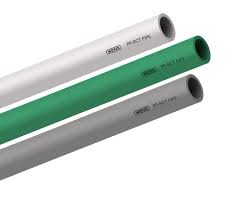Dec . 13, 2024 06:54 Back to list
HDPE Pipe Solutions for Efficient Irrigation Systems and Water Management
HDPE Pipe for Irrigation Service A Sustainable Solution for Modern Agriculture
In the ever-evolving landscape of agriculture, the need for efficient and sustainable irrigation solutions has become more prominent than ever. Among the various materials used in irrigation systems, High-Density Polyethylene (HDPE) pipe stands out as a preferred choice for farmers and irrigation specialists alike. Known for its strength, durability, and versatility, HDPE pipe is increasingly being adopted in agricultural irrigation systems, paving the way for more sustainable farming practices.
What is HDPE Pipe?
HDPE pipe is made from high-density polyethylene, a type of thermoplastic that is known for its high strength-to-density ratio. It is widely used in various applications, including water distribution, sewage systems, and, importantly, irrigation services. The properties of HDPE, including its resistance to corrosion, UV radiation, and chemical damage, make it an ideal choice for agricultural applications.
Benefits of HDPE Pipes in Irrigation
1. Durability One of the most significant advantages of HDPE pipes is their durability. These pipes can withstand extreme weather conditions, pressure fluctuations, and physical impacts, making them suitable for long-term use in agricultural settings. Unlike traditional materials, such as PVC and metal pipes, HDPE does not corrode or degrade over time, which translates to lower maintenance costs and reduced frequency of replacement.
2. Flexibility HDPE pipe is remarkably flexible, allowing for easier installation in various terrains and configurations. This flexibility enables farmers to lay pipes in curved paths and around obstacles without the need for additional fittings. Moreover, the lightweight nature of HDPE reduces transportation costs and simplifies installation processes.
3. Water Conservation Efficient water delivery is critical in agriculture, and HDPE pipes excel in this regard. The smooth inner surface of HDPE pipes minimizes friction loss, resulting in improved water flow and reduced energy consumption during pumping. Additionally, HDPE systems can be designed to minimize leaks and evaporation, contributing to water conservation efforts in farming. This is particularly important in regions facing water scarcity, where every drop counts.
hdpe pipe for irrigation service

4. Chemical Resistance Agricultural environments often involve exposure to various chemicals, including fertilizers and pesticides. HDPE pipes are resistant to a wide variety of chemicals, ensuring that they maintain their integrity and performance over time. This resistance makes HDPE an ideal choice for farms employing advanced agricultural practices, such as precision irrigation and integrated pest management.
5. Cost-Effectiveness While the initial investment in HDPE pipes may be higher than some traditional materials, the long-term savings and benefits offset this cost. Reduced maintenance, increased durability, and enhanced efficiency contribute to the overall cost-effectiveness of HDPE in irrigation systems. Furthermore, the extended lifespan of HDPE pipes means that farmers can expect a favorable return on their investment over time.
Installation and Maintenance
Installing HDPE pipes for irrigation is a straightforward process. The pipes can be easily welded or joined using various techniques, such as butt fusion or electrofusion, creating strong, leak-free connections. Maintenance of HDPE systems is minimal due to their durability and resistance to wear and tear. Regular inspections to detect any signs of wear, clogs, or leaks will ensure that the irrigation system remains in optimal working condition.
Environmental Impact
The use of HDPE pipe for irrigation has positive implications for environmental sustainability. Given its longevity and ability to conserve water, HDPE piping systems can significantly reduce the environmental footprint of agricultural practices. Additionally, HDPE is recyclable, further promoting a circular economy and reducing plastic waste.
Conclusion
In conclusion, HDPE pipe represents a modern and sustainable solution for irrigation services in agriculture. Its numerous benefits, including durability, flexibility, water conservation, chemical resistance, and cost-effectiveness, make it an ideal choice for farmers looking to enhance their irrigation systems. As the agricultural sector continues to adapt to the challenges of water scarcity and environmental sustainability, the adoption of HDPE pipes will play a critical role in shaping the future of irrigation practices. Embracing such innovations will not only benefit farmers but also contribute to the overall health of our planet.
-
High-Quality PVC Borehole Pipes Durable & Versatile Pipe Solutions
NewsJul.08,2025
-
High-Quality PVC Perforated Pipes for Efficient Drainage Leading Manufacturers & Factories
NewsJul.08,2025
-
High-Quality PVC Borehole Pipes Durable Pipe Solutions by Leading Manufacturer
NewsJul.08,2025
-
High-Quality PVC Borehole Pipes Reliable PVC Pipe Manufacturer Solutions
NewsJul.07,2025
-
High-Quality UPVC Drain Pipes Durable HDPE & Drain Pipe Solutions
NewsJul.07,2025
-
High-Quality Conduit Pipes & HDPE Conduit Fittings Manufacturer Reliable Factory Supply
NewsJul.06,2025

